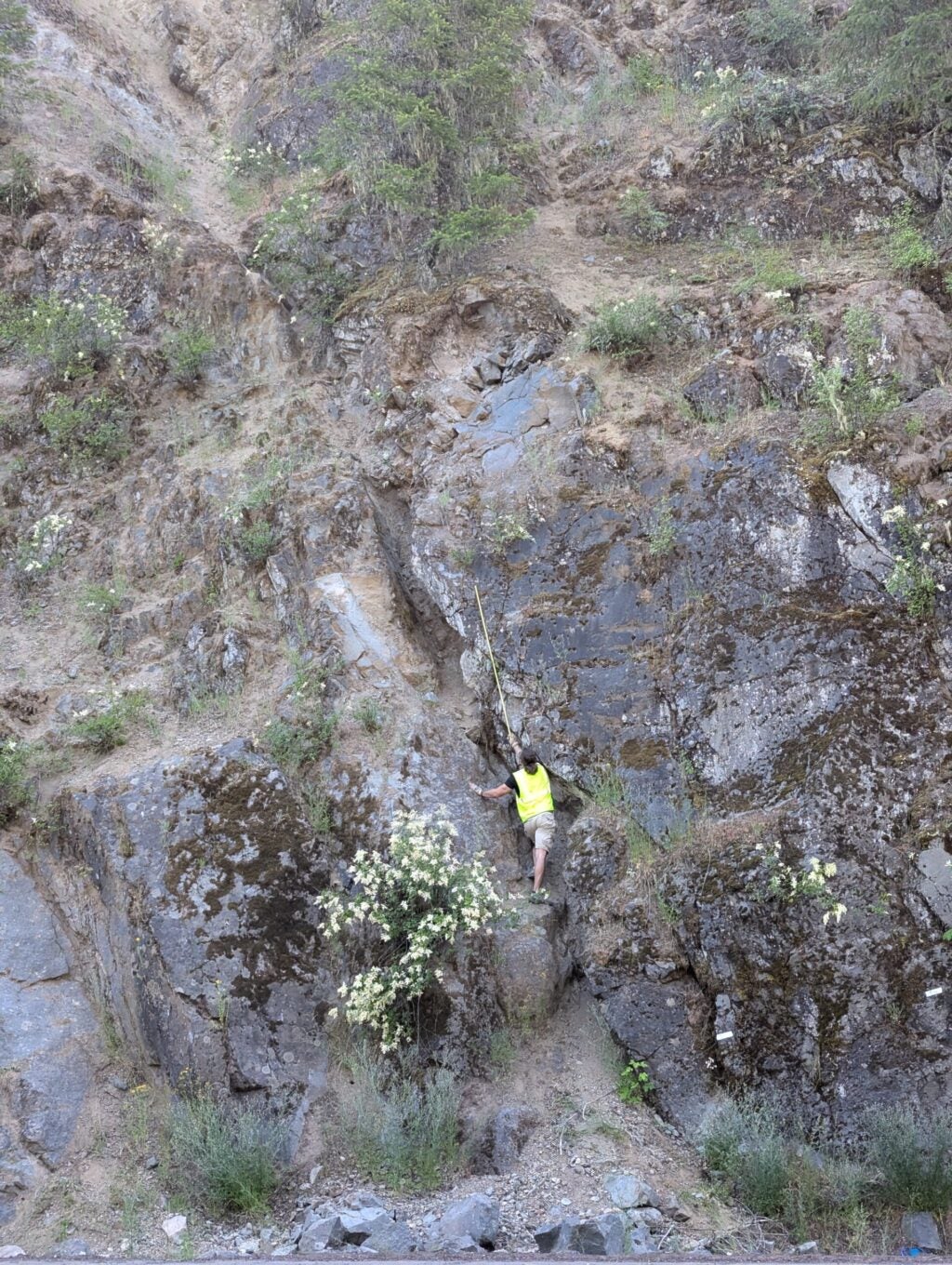The origin of welding in the mafic Trailbridge Reservoir Ignimbrite (TBR) – an analog for Martian Volcanism

Explosive volcanism is relatively commonplace on Earth. While the processes that control silicic explosive volcanism and deposit emplacement are well researched, gaps remain in our understanding of strongly explosive mafic volcanism. Even rarer is the presence and understanding of the unique conditions under which mafic ignimbrites weld.
To better constrain the conditions under which mafic ignimbrites weld as well as variations in post-depositional processes relative to silicic ignimbrites, I investigate the mafic Trailbridge Reservoir Ignimbrite (TBR), a 5.0 Ma welded mafic (SiO₂ 52-54%) deposit located between the western and High Cascades of Oregon. The single outcrop identified for this unit exhibits textual characteristics typical of ignimbrites, including intense welding, lithics, and occasional visible fiamme. This indicates that the eruption and emplacement of this deposit must have been near the glass transition temperatures for mafic glass (~1100-1250°C).
My primary research question is what were the conditions that enabled this mafic ignimbrite to weld. A secondary question is what post-emplacement alteration products occur, such as devitrification or vapor phase alteration, and how do these compare to similar post-deposition products in silicic ignimbrites?
To address these questions, I will investigate the underlying conditions that triggered the explosive eruption of the TBR, as well as the conditions that induced welding in this deposit. To achieve this goal, I will complete stratigraphic analysis to constrain variability across the outcrop. I will sample across this variability and complete subsequent petrographic investigation to explore evidence for magma mixing, which may have initiated the eruption, and the variability in clast and phenocryst to groundmass proportions, which will help to constrain the explosivity of the eruption and why the deposit was conducive to welding. I will use a scanning electron microscope to explore the presence and nature of microlites to constrain the eruptive processes (e.g., ascent rate and variability in ascent rate), as well as post-welding alteration (devitrification and zeolitization). To supplement this, I will also complete a literature review to explore why mafic ignimbrites are so rarely identified on Earth, and why they may be more common on Mars. Finally, I will compare what I find for the TBR with photographs and spectral characteristics of possible welded ignimbrite exposures on Mars, taken by the Spirit and Perseverance rovers. What I learn from the TBR thus has implications for understanding explosive volcanic phenomenon on our planet as well as on Mars.
People
- Brennan Williams-Mieding, Boise State University – Department of Geosciences M.S. student
- Dr. Brittany Brand, Boise State University – Department of Geosciences
Project Collaborators
- Dr. Steven Ruff, Arizona State University – School Of Earth and Space Exploration